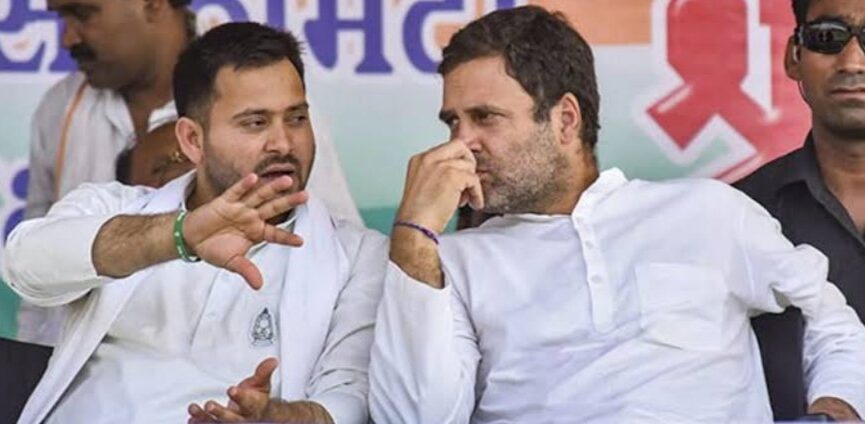ECI’s Special Revision Drive in Bihar Sparks Political Firestorm
The Election Commission of India (ECI) is facing increasing political backlash following its decision to conduct a Special Intensive Revision (SIR) of the electoral rolls in Bihar, just months before the upcoming state assembly elections. The drive, aimed at verifying voters’ identity and citizenship through door-to-door document checks, has sparked criticism from major opposition parties, led by the Mahagathbandhan, who claim it is a targeted move to disenfranchise sections of voters.
The revision includes collecting proofs such as birth certificates, school records, and domicile certificates—measures the ECI says are part of routine pre-election cleanups, but the timing and focus have turned it into a flashpoint.
Political Storm: Mahagathbandhan Declares Bihar Bandh
The move drew immediate protests from opposition leaders including Rahul Gandhi and Tejashwi Yadav, who spearheaded a statewide Bihar Bandh on July 9, 2025. Protesters blocked roads, shut shops, and demonstrated outside ECI offices, claiming the revision process unfairly targets Dalits, Muslims, backward classes, and migrant workers.
Tejashwi Yadav accused the Election Commission of functioning as a “political wing” of the ruling party, alleging that the SIR is designed to erase legitimate voters under the guise of technical corrections.
“This is not a verification drive—it’s a voter cleansing operation. The poor, the marginalized, the voiceless—those who don’t always have documents—are the ones being hit,” Yadav said during a press briefing in Patna.
Supreme Court to Hear Pleas Against Revision
Amid the controversy, a group of civil society activists and legal experts has filed Public Interest Litigations (PILs) in the Supreme Court, seeking a stay on the drive. The petitions argue that the process violates Articles 14, 19, and 21 of the Constitution, besides infringing the democratic rights enshrined under Articles 325 and 326, which guarantee equal voting rights to all citizens.
The Supreme Court is expected to hear the matter later this month, and its ruling could set a precedent for future electoral exercises in other states.
ECI Responds: Routine and Constitutional
In response, the Election Commission has maintained that the revision is constitutional and necessary to prevent duplication, impersonation, and fraudulent entries. Officials clarified that similar verification exercises are also being conducted in other states such as Assam, Kerala, West Bengal, and Tamil Nadu, which are headed for elections in 2026.
The ECI insisted that no eligible citizen will be removed from the rolls without due process and ample opportunity to present valid documents.
High Stakes Ahead of 2025 State Elections
The timing of this revision has fueled speculation that the move could influence the electoral balance in Bihar, a politically crucial state with 243 assembly seats. The opposition argues that this could be a subtle form of voter suppression, especially in constituencies with high minority populations.
For the ruling alliance, which includes BJP and JD(U), the revision is being framed as an administrative necessity to clean the rolls before a high-stakes election.
Key Highlights
- What is the SIR?
A Special Intensive Revision by ECI involving door-to-door verification of voter data, including citizenship and residency proof. - Why the backlash?
Opposition claims it targets marginalised communities, especially those who lack documentary proof despite being citizens. - Legal angle:
PILs filed in Supreme Court questioning the constitutional validity and timing of the exercise. - ECI stance:
Says it is a legal obligation under the Representation of the People Act and not limited to Bihar.
As the electoral calendar moves closer to the Bihar Assembly elections, how the Election Commission handles concerns of transparency and inclusion will likely shape public confidence in the democratic process. The onus now lies on both the judiciary and the poll body to ensure fairness and constitutional balance.
